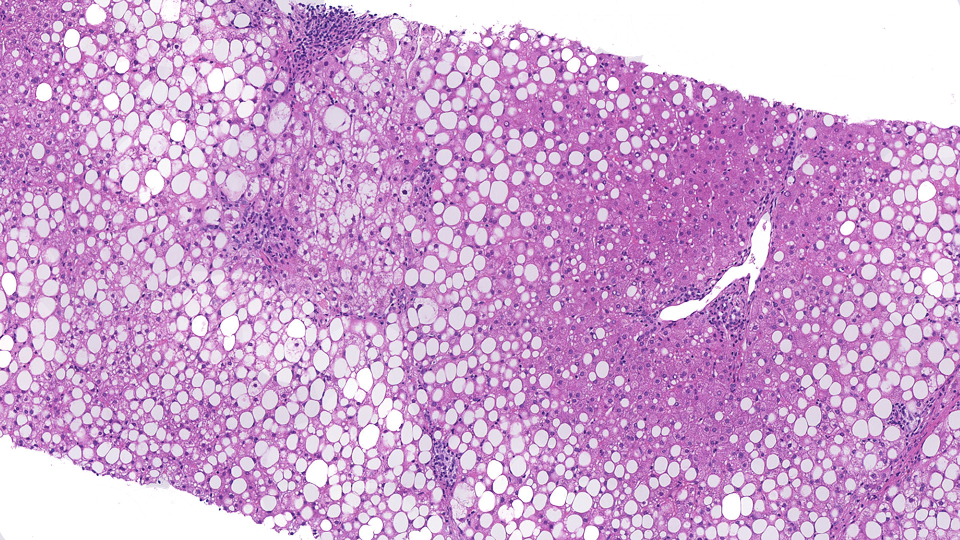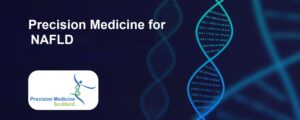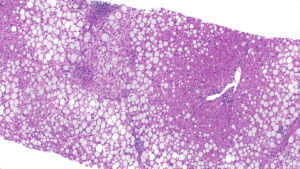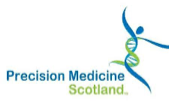Researchers at the University of Edinburgh are part of an international collaboration that has been awarded €750,000 (£690,000) for a project to develop diagnostic tools for liver disease affecting millions worldwide.
The team, supported by Edinburgh Innovations, will seek ways to interpret patient data to predict when non-alcoholic fatty liver disease (NAFLD) is likely to progress into dangerous conditions such as cirrhosis of the liver and liver cancer.
Industry collaboration
Professor Jonathan Fallowfield and Dr Tim Kendall of the University’s Centre for Inflammation Research will work with a specialist imaging company based in Singapore and two British firms specialising in data management and artificial intelligence techniques. The project will be managed by Precision Medicine Scotland Innovation Centre (PMS-IC).
Around one in four people has NAFLD, which is often unnoticed and undiagnosed, and around 5 per cent of the population will develop a more progressive form of liver disease (non-alcoholic steatohepatitis or NASH) that can lead to cirrhosis, liver cancer and premature death.
Currently, there is no way of telling which people with NAFLD might develop the severe form or progress to cirrhosis, and there are no medicines available to treat NAFLD.
Innovate UK funding
Professor Fallowfield and Dr Kendall have been awarded the funding from Innovate UK, part of the national funding agency UK Research and Innovation, for the project named INTErPRET-NAFLD.
“Identifying the high-risk NAFLD population – those who progress to adverse clinical outcomes – remains the holy grail in liver disease.
“In this project we will work with experts in digital pathology, data science and AI to investigate a very large dataset, incorporating existing real-world patient data derived from liver biopsies, genomics and electronic medical records.
“Our ambition is to develop risk prediction models that can be embedded into routine clinical care and facilitate a ‘precision health’ approach to NAFLD.”
– Professor Jonathan Fallowfield, Chair of Translational Liver Research, University of Edinburgh.
AI image analysis
The researchers will work with HistoIndex, a Singapore-based digital pathology specialist, to perform AI-augmented image analysis of liver biopsies from the Scottish SteatoSITE database, which the Edinburgh team and PMS-IC previously helped to establish.
These second harmonic generated (SHG) images acquired from stain-free liver biopsies will enrich the dataset, which will then be processed by Glasgow-based Biodev, a data managementand bioinformatics specialist, and London-based Bering Ltd, which develops medical applications of AI. The project is one of the first to utilise the SteatoSITE resource.
“Predicting the course of liver disease is extremely hard because patient profiles are so different.
“By bringing together experts across clinical and technological domains, we are developing a truly personalised precision-medicine approach to this global problem.
“As a UK-based SME, we are delighted to be a part of this ambitious international endeavour.”
– Dr Ignat Drozdov, Managing Director, Bering.
New patient data tests
By working with a rich dataset in new ways, the collaboration aims to discover new tests that can be applied to patient data to accurately predict which NAFLD patients are at greatest risk.
The team has been supported by Edinburgh Innovations to coordinate the international collaboration and the funding application to Innovate UK.





